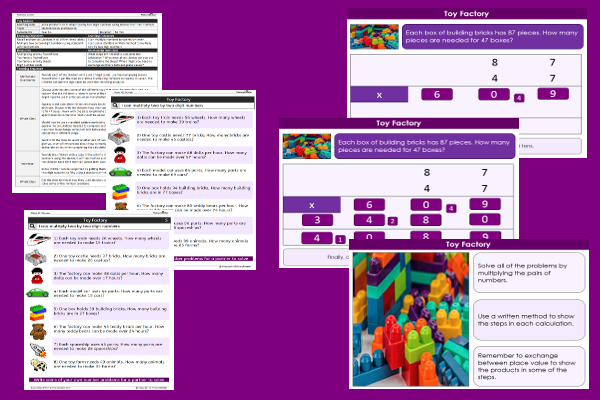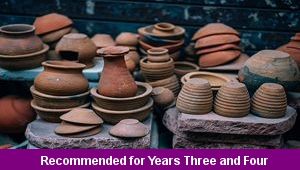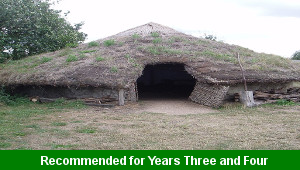Lesson Two – Toy Factory

This maths teaching pack for Key Stage Two gets the children to solve problems about toys made in a factory by multiplying two by two digit numbers using standard written methods of calculation for multiplication.
The class can identify and explain how to use facts in the times tables to complete each step in their written number calculations with exchange between place value.
Download this teaching pack including a lesson plan, classroom activities and an interactive presentation to teach the children to solve problems about toys made in a factory by multiplying two by two digit numbers using standard written methods of calculation for multiplication
Activities in this teaching pack include a set of differentiated worksheets to calculate numbers of toys that have been manufactured in a factory by using standard methods of calculation to multiply two by two digit numbers.
The interactive presentation gets the children to explore how to solve problems to multiply two by two digit numbers using standard written methods of multiplication.
This lesson is part of a maths scheme of work to get the children to practise using standard written methods for multiplication to solve abstract and real world problems. There are teaching activities for shared learning, differentiated worksheets to support independent learning and interactive presentations to introduce concepts and key skills.
-

Cities, Towns and Villages
Research and present the history of a range of different buildings and people that are part of the local community using a school exhibition
-

Recycling
Research and present some of the benefits and disadvantages that can be produced when recycling different materials at home and in school
-

Viking Pots
Develop and refine a range of different art and design techniques when working with clay to make pots that represent Viking culture and traditions
-

Bronze Age
Research and illustrate how life in Britain developed and changed during the Bronze Age including the growth of communities and trade
